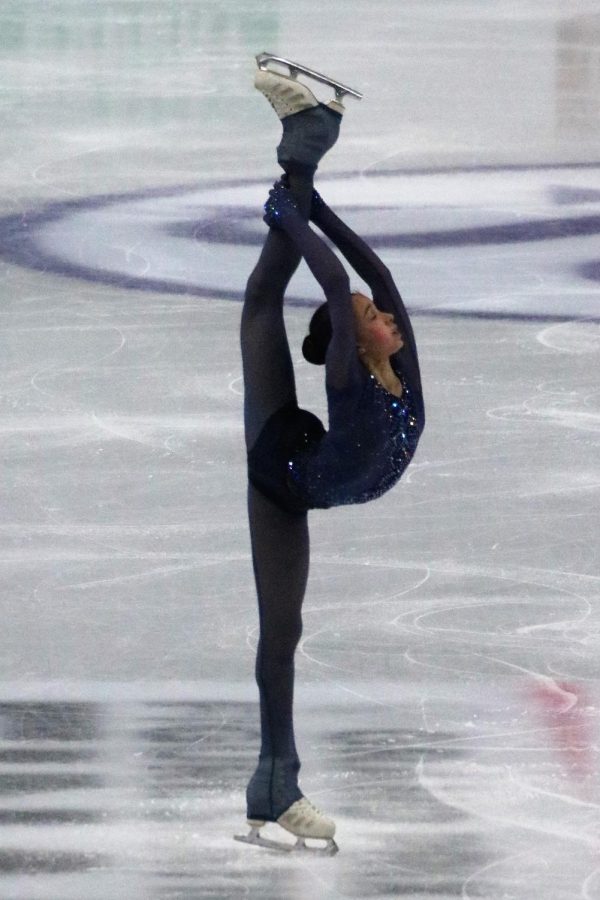When a Russian figure skater has the rules bent in her favor for a mistake she was too young to make in the first place but an African-American runner is outright disqualified for following a local law over an international one, heads turn. While these individual scandals each involve unique circumstances, their conspicuously different outcomes are what really start conversations.
Minor on thin ice
Kamila Valieva is a 15-year-old Russian figure skater who competed at her first Olympics in Beijing in February of 2022. Valieva dazzled fans across the globe and made history as the fourth woman of all time to land a triple axel at the Winter Olympic games. Hearts shattered when it was announced that Valieva had had a positive drug test in December for trimetazidine.
The World Doping Agency prohibits all athletes from using this substance, but when Valieva appealed her suspension to the Russian Anti-Doping Agency (RUSADA), they lifted it due to her age. As Valieva is under 16, she is protected from being held liable for the drugs in her system. If she were any older, she would be disqualified from the event and potentially prevented from competing again. Instead, the regulation holds her coach, the infamous Eteri Tutberidze, accountable.
Tutberidze and The Russian Olympic Committee (ROC) have historically prioritized material success over the wellbeing of their skaters, proven recently at the Beijing games. After nearly perfect execution on the ice, numerous young Russian skaters left crying, hyperventilating and taking the blame for their fundamentally faultless performances.
Anna Shcherbakova, the 17-year-old Russian skater who ultimately took home the gold, also faced intense anxiety both before and after performances. After her massive international accomplishment was announced, she merely described feeling “empty inside.” Was her win even worth the agony?
Slate described, “This is a regime that leaves a child crying on the ice in what is likely to be her only Olympics appearance, while the coach who trained her and scolded her gets to come back the next day, standing beside athletes from a nation that has systemically gamed the international anti-doping system while evading any meaningful consequences.”
Senior Nali Sanchez-Carmona runs track and figure skates. She believed, “Athletes should have the right to have full autonomy of their body without a coach’s pressure for unrealistic expectations.” The physical and mental pressure these child athletes are under is unsustainable for mental longevity and love of the sport.
Junior Arissa Khan is an Olympic aficionado and has closely followed teams’ journeys to the Beijing games. When Valieva’s positive drug test was publicized, Khan was sympathetic but realistic. “It ruins the idea of a clean competition if one person has performance-enhancing drugs, and it ruins all the other athletes’ hard work and their efforts to keep the sport clean and fair,” she expressed.
Valieva was projected to win gold, but part of her suspension compromise entailed that there would not be a medal ceremony if she placed in the top three. Whether or not her performance results were dependent on the scandal surrounding her positive drug test cannot be confirmed, the pressure was high, and she missed the mark winning fourth at what may have been her final Olympic games.
Khan expressed, “If she’s not old enough to be held accountable for having drugs in her system, then she shouldn’t be old enough to compete.” Khan pressed that the Russian Olympic Committee (ROC) should be further investigated. “The ROC took advantage of the fact that she is underage and manipulated her and gaslit her and forced her to use these drugs that ultimately cost her her reputation as a skater.”
While Valieva’s sheer talent cannot be denied, the line between her own natural skill and her enhanced performance became negligible and her reputation has been permanently tarnished.
Yet another hurdle to jump
American track runner and 21-year-old Sha’Carri Richardson was a favorite to win at the June 2021 U.S. Track and Field Trials in Eugene, Ore. In addition to her lightning speed, her bejeweled acrylic nails, bright orange hair and sparkling, contagious confidence went viral during her time at the trials. Richardson placing first in the 100-meter dash set her on track to star at the Summer Olympic games in Tokyo.
However, after her victory, Richardson tested positive for marijuana use and was suspended for one month by the U.S. Anti-Doping Agency (USADA). She described using it as a coping mechanism in the wake of her mother’s death, but she explicitly shared she was not looking for an excuse and took full responsibility nonetheless.
Marijuana legalization is a hot topic in the United States, and individual state governments make the decision themselves; marijuana is a legal substance in Oregon. It affects the brain but is not a performance-enhancing drug. Regardless, it is still an illegal substance under the USADA. Neither Richardson nor Team U.S.A. appealed the suspension, which carried into the Tokyo games. She did not compete. She followed the rules and gracefully accepted the consequences.
Substance intersection and the international consequences to follow
While Valieva’s doping scandal deals with its own specificity, the overlap includes very talented young women, illegal drugs and reputation. The cases split at the athletes’ countries’ defense. The ROC was directly involved in Valieva’s substance violation and immediately requested an appeal for her benching. Even though Richardson did not smoke marijuana under Team U.S.A.’s supervision, their shockingly cold disclination to stand up for one of their top sprinters negated their loyalty to the athletes. There is no “U.S.” in “team.”
Even if the ROC took advantage of young athletes’ legal benefits to win, they were more than ready to advocate for their skater’s right to compete in the sport she lives for. The United States allowed athletes to represent America until America actually had to fight for them.
A tweet by Richardson in response to Valieva’s suspension lift called out the adjacent situations. “Can we get a solid answer on the difference of her situation and mines? My mother died and I can’t run and was also favored to place top 3. The only difference I see is I’m a [B]lack young lady.” While age, substance and nation all make a difference, race is part of the discussion. No matter her talent, was the U.S. willing to fight for a young Black woman?
This would not be the first time Team U.S.A. treated Black athletes as spectacles rather than teammates. During the 1936 Olympics in Nazi Germany, track and field legend Jesse Owens was the star competitor, making history as the first American to take home four gold medals in one year in track and field.
Upon the team’s return to the segregated states, many U.S. athletes were congratulated and invited by President Franklin Roosevelt to visit the White House. Despite dominating at the games, Owens received no invitation nor acknowledgement. It was not until 2016 when President Barack Obama invited the families of Owens and other historic Black athletes to the White House that Owens received his long-overdue recognition.
If athletes are going to compete for their country’s glory, it is absurd for nations to neglect them in this way. Sanchez shared her insight, “A big issue in the Olympics and with higher competing athletes is how countries begin to see them as assets rather than as individuals. They should find a balance that can still support the individual athlete – without manipulating or cheating a system – that will benefit both [parties].”
Khan added, “I don’t think either of these situations was handled correctly. Sha’Carri Richardson’s case was interesting because marijuana is not a performance-enhancing drug and would not have affected her performance as a runner. The double standard there is very obvious,” She then acknowledged, “At the same time with Kamila Valieva, they were way too lenient and they didn’t hold the people who were responsible for their actions accountable.”
Neither athlete’s career should end here. It is the responsibility of their home nation to protect, defend and advocate for their reputations and right to compete for years to come if they expect athletes to do the same for them.









